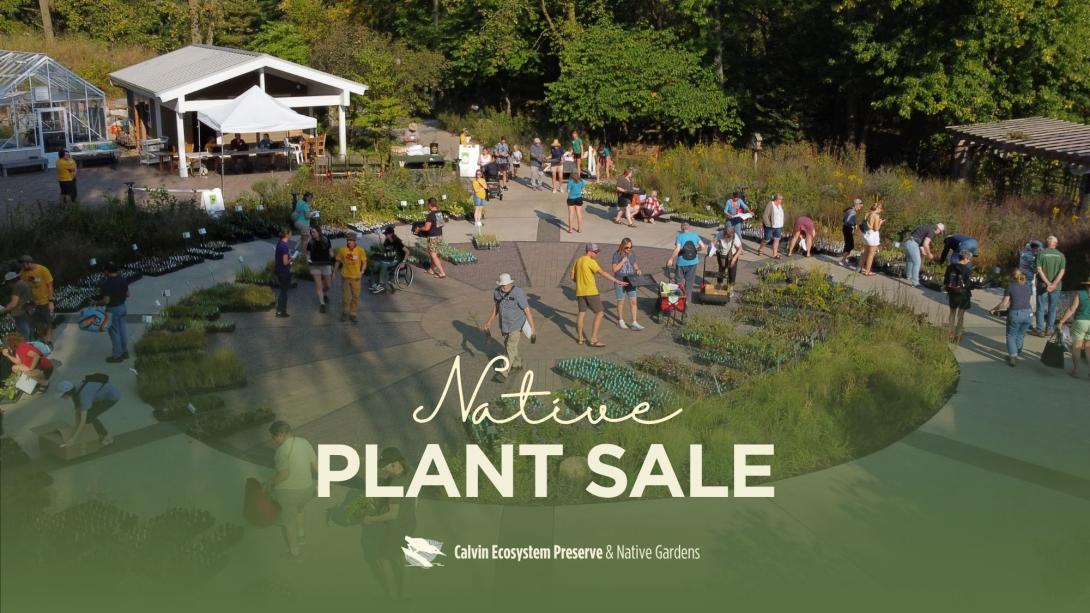
What a year!
Your support of native plant sales is transforming yards
into havens for pollinators and wildlife alike!
2026 Dates to save:
- Friday, May | 15 Intro to Native Plant Workshop | 6-8 PM
- Saturday, May 16 | Spring Native Plant Sale | 10 AM - 2 PM
.............................................................................................................
Fall Native Plant Sale
Saturday, May 16 | 10 AM - 2 PM
The fall native plant sale is a great last chance to fill in areas in your landscape before the land sleeps for the winter. We offer a robust variety of plants grown in our greenhouse. A current native plant list and cultural guide will be available in the week or so before the sale.
Bring the family along as you shop. We have children's programming for ages 3+.
This year, it's All About Bees with bee themed crafts and obstacle course!
+
Every Yard a Refuge | Friday, May 15 | 6-8 PM
Our yards can serve as an important refuge for native plants and the wildlife that depend on them. Matt Dykstra, of the Calvin Ecosystem Preserve and Native Gardens, will provide an introduction to native plant gardening. The program will cover why native gardens are important, how to establishing a garden at your home, and common challenges that new native plant gardeners encounter. The program will include a tour of the plants available for sale. Participants can select any one perennial plant to take home as part of the program, and will be able to purchase other plants ahead of the main sale on Saturday.
Cost: $20, program limited to 25 participants
Registration available in spring of 2026.
...............................................................................................................
Volunteer with us again in February!
Become a volunteer! Join us in the greenhouse every M, W, TH!
For ages 18+ if a parent or guardian isn't present.
..........................................................
Questions? Contact Benji Steenwyk benjamin.steenwyk@calvin.edu
Stay in touch with us on Instagram and Facebook.
..................................................................................................................
View our Native Plant List & Cultural Guide for an idea of what products are available throughout the year. This guide will be updated very close to the spring sale. We'll post in Facebook when the 2026 sale guide is available.
Native plants are flowers, grasses, trees and shrubs that have inhabited Michigan since before European settlement. Each year, we collect native seeds from West Michigan and propagate them in our greenhouses. The Native Plant Sale features more than 100 rare, unusual, and favorite varieties of native wildflowers, shrubs, and grasses for all growing conditions, including drought-tolerant, rain garden, and shade species.
When the online native plant sale is open, orders are fulfilled on Thursdays and available for pickup on Fridays from the glass house at 1750 East Beltline Ave. SE, Grand Rapids, MI 49546.
Proceeds benefit educational and stewardship programs at the preserve. Thank you for your support!
LEARN MORE
For additional species information and photos, visit these online databases:






